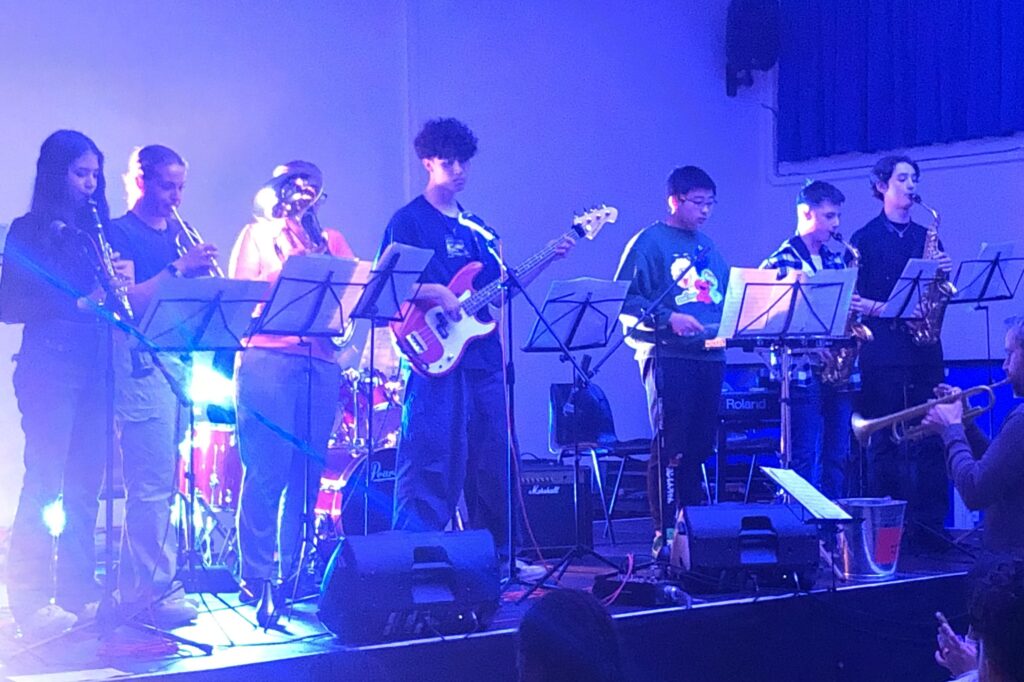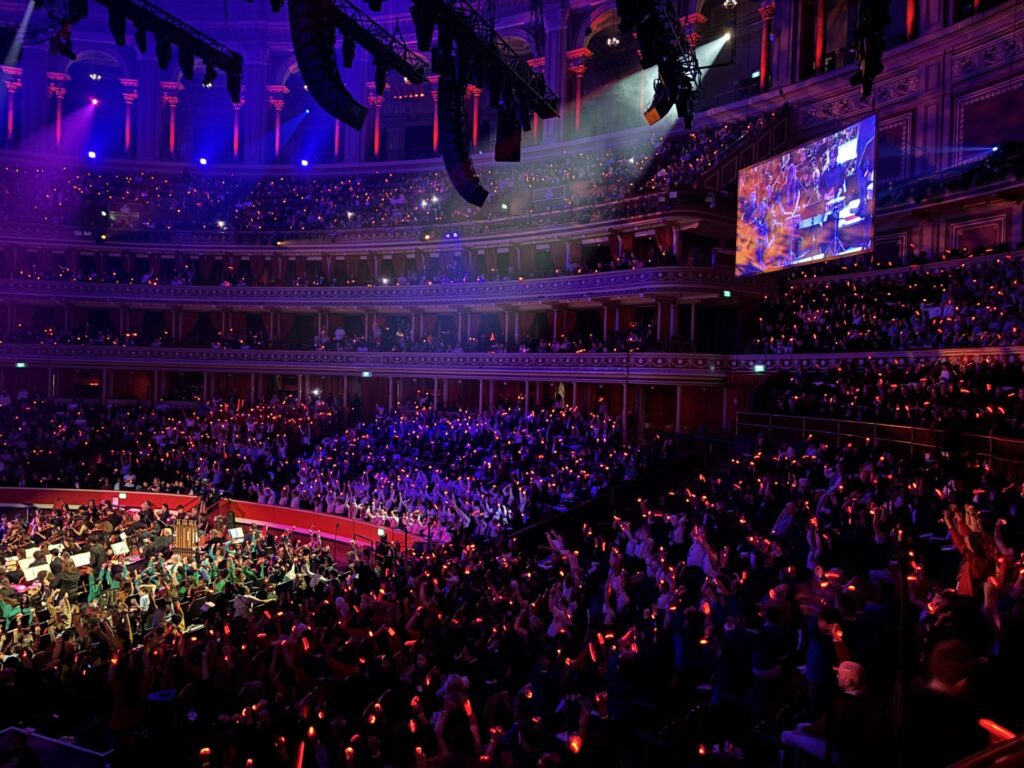
Welcome to the Music Department
Department Staff
| Mrs K Greene | Subject Leader: Music |
| Mr C Tempest-Roe | Teacher of Music |
Curriculum Vision
The aim of the music department is to provide students with the opportunity to explore a variety of instruments and pieces of music through the study of different musical genres. This will develop students’ listening and appraising, performing and composing skills, as well as their understanding of a range of social and historical contexts.
The Music department has excellent teaching facilities consisting of two large classrooms which are both well equipped with a selection of keyboards and pianos, tuned and untuned percussion, class set of ukuleles, class set of djembes, a drum kit, acoustic, electric and bass guitars. Alongside the classrooms we have a computer suite running Ableton and Sibelius software, an A-level teaching room and two practice rooms where instrumental lessons take place. We have eight visiting instrumental teachers, mainly supplied by Redbridge Music Service, who provide individual instrumental and singing lessons to approximately 80 students.
The department runs a strong extra-curricular programme, which includes an orchestra, a ukulele club, vocal ensembles, and several Rock/Pop bands, all of whom perform at regular concerts throughout the year. The department has taken students on several music tours abroad and contributes to the community through visits to local care homes and the hospital providing live music. Students are also supported in putting on performances outside of school. We help to uphold the Catholic ethos at Trinity by providing music for year group masses on special occasions.

KS3
At KS3 students study a range of styles and instrumental skills using the keyboard, pitched and unpitched percussion, the Djembe drum and the ukulele. The topics studied are:
Year 7
- Bridging the gap; basic music theory, elements of music and keyboard skills
- Ukulele skills and performance
- Film music, through performing, composition and contextual history
- Samba music
Year 8
- African music
- Programme music with keyboard skills
- Protest songs
Year 9
- History of the Blues
- Early Rock and Roll
- Rock Riffs through the Decades
KS4
Students study the Edexcel GCSE Music (2016) specification;
Paper 1: Performing
For performing students play or sing music totalling a minimum of four minutes, which must include one ensemble piece of at least a minute. Any instrument or voice is acceptable and the performances must take place during their examination year (Yr11).
Paper 2: Composing
Candidates are required to develop musical ideas in the form of two compositions. One piece is composed according to a brief set by the exam board based on one of the four areas of study (see paper 3) released at the beginning of the examination year (Yr11). The second composition is in a free style set to a brief written by the candidate.
Paper 3: Listening and Appraising
Year 11 Candidates take an examination lasting 1 hour 45 minutes. They respond to questions based on recorded extracts on a CD. The questions are based on the eight set works studied from the four areas of study:
Instrumental Music 1700-1820
(Bach: Brandenburg Concerto no 5. 3rd movement & Beethoven: Piano Sonata no 8. 1st movement)
Vocal Music
(Purcell: Music for a While & Queen: Killer Queen)
Music for Stage and Screen
(S. Schwartz: Defying Gravity & J Williams: main title/Rebel blockade runner from Star Wars Episode IV)
Fusions
(Afro Celt Sound System: Release & Esperanze Spalding: Samba Em Preludio)
KS5
Performing 25%
This is externally assessed through a video recording completed in a formal concert setting. Students will give a recital of between six and nine minutes duration performing at least two contrasting pieces as a solo or within an ensemble setting.
Composing 35%
This is completed as coursework and is externally assessed. Students will compose three separate pieces of Music with the combined length of 8 minutes minimum. Composition 1 will be in response to a brief set by OCR, composition 2 will be a brief set by the candidate, in a free style and composition 3 will be a set of three short pieces demonstrating techniques found in one chosen Area of Study.
OR
Performing 35%
This is externally assessed through a video recording completed in a formal concert setting. Students will give a recital of between ten and fifteen minutes duration performing at least three contrasting pieces as a solo or within an ensemble setting. One further piece is required which is idiomatic of the instrument/vocal repertoire.
Composing 25%
This is completed as coursework and is externally assessed. Students will compose two separate pieces of Music with the combined length of 4 minutes minimum. Composition 1 will be in response to a brief set by OCR, composition 2 will be a brief set by the candidate, in a free style.
Historical and Analytical Studies 40%
This is an externally assessed timed examination of two hours and 30 minutes duration. There are three sections in the examination. In the first you will answer a variety of questions on an unfamiliar work. In the second you will answer two analysis style questions comparing aural extracts and testing understanding of musical background and context on set works that you will study throughout the course. In the concluding section you will answer two essay questions based on the prescribed works studied in class.


